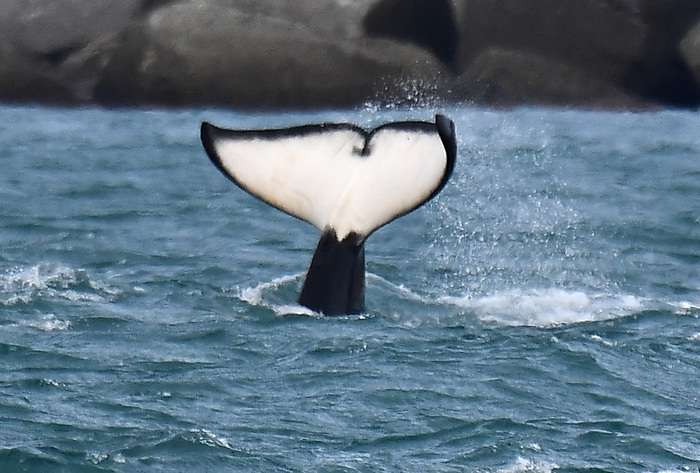Enlarge image
Sharks in the sea
Photo: Tomas Kotouc / 500px Plus / Getty Images
Sharks first appeared on this planet a good 400 million years ago.
Since then, they have survived all kinds of catastrophes - such as the great mass extinction 66 million years ago, which probably also killed the dinosaurs as a result of a meteorite impact.
But around 19 million years ago they almost disappeared from the world's oceans, scientists reported in the summer of 2021 in a study in the journal Science. At that time, according to the work, an unprecedented and puzzling mass extinction occurred in the evolution of deep-sea sharks. Around 90 percent of the holdings had been destroyed, concluded the study by two researchers from Yale and Harvard University. It was the first time that such a hitherto unknown mass extinction was reported. But now doubts have arisen as to whether the great death in the deep sea actually took place.
At the time, the researchers analyzed drill cores from the deep sea for the study. These sediments are a kind of archive of the oceans - everything that sank to the bottom over time was deposited here. This also includes tiny fossil skin scales and teeth or pieces of teeth from sharks. In the study, the authors believed that a decrease in these traces in the old sediments could indicate the relatively sudden end of many cartilaginous fish. But now two teams of scientists have doubts about such a drastic event. They published corresponding comments in "Science".
The researchers led by Iris Feichtinger from the Natural History Museum (NHM) Vienna examined similarly old marine deposits from Europe and Asia. They could not find any indication of such a massive event anywhere. It is possible that the samples from the first study, which contained only tiny amounts of fossils, were simply diluted by increased sludge input, they say about the misguided interpretation.
Even a team led by Gavin Naylor from the University of Florida does not believe in the death of so many cartilaginous fish millions of years ago.
"We assume that the observed pattern is not due to an extinction, but to the shift in the distribution areas of the species, which has resulted from a change in ocean currents," it says in their contribution.
In any case, such an event cannot be determined on the basis of the flakes of skin.
Hardly any individual shark species can be identified
The paleobiologist Julia Türtscher from the Institute of Paleontology at the University of Vienna, who SPIEGEL asked for an assessment of the study at the time, was already critical of the results at the time of publication. It is true that she spoke of extremely interesting work. But she considered taxonomic statements on the basis of skin particles, the so-called denticles, to be difficult, since it was hardly possible to identify individual shark species. In the most drastic case, the loss of a single species of shark could be accompanied by the loss of a multitude of different denticle shapes. It is true that one can identify shark species by means of individual teeth. But such an extinction event has not yet been able to be proven, said Türtscher.
The authors of the original study have now also responded to the criticism of the two research teams.
They still assume that they have drawn the correct conclusions from their data.
joe








